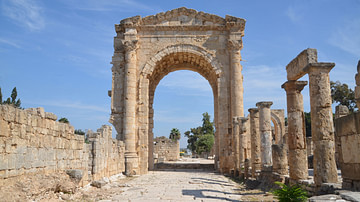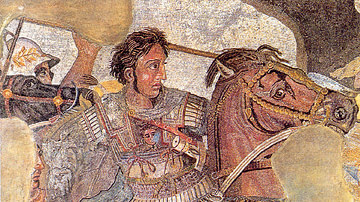Server Costs Fundraiser 2024
Help our mission to provide free history education to the world! Please donate and contribute to covering our server costs in 2024. With your support, millions of people learn about history entirely for free every month.
$3926 / $18000
Video
Cite This Work
APA Style
Encyclopedia, A. H. (2020, July 20). Alexander the Great and Hellenization in the 4th Century BCE. World History Encyclopedia. Retrieved from https://www.worldhistory.org/video/2069/alexander-the-great-and-hellenization-in-the-4th-c/
Chicago Style
Encyclopedia, Ancient History. "Alexander the Great and Hellenization in the 4th Century BCE." World History Encyclopedia. Last modified July 20, 2020. https://www.worldhistory.org/video/2069/alexander-the-great-and-hellenization-in-the-4th-c/.
MLA Style
Encyclopedia, Ancient History. "Alexander the Great and Hellenization in the 4th Century BCE." World History Encyclopedia. World History Encyclopedia, 20 Jul 2020. Web. 26 Jul 2024.




